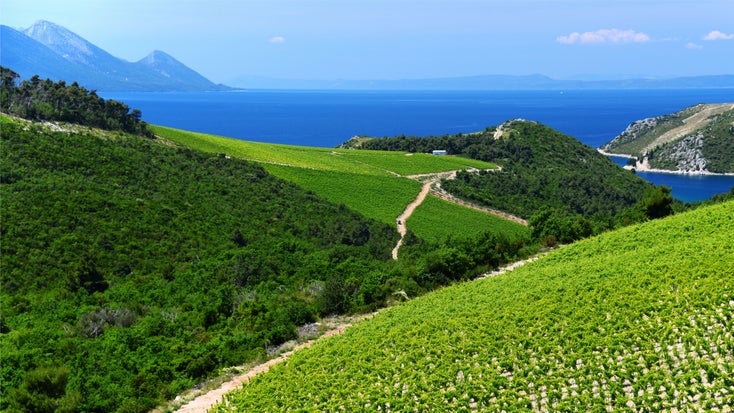Dalmatia, located along the Adriatic coast of Croatia, is renowned for its stunning landscapes, ancient cities, and rich winemaking tradition. In recent years, the region has also become a focal point for natural winemaking. With its diverse terroir, including limestone soils, coastal breezes, and ample sunshine, Dalmatia offers an ideal environment for sustainable viticulture. Natural winemakers here prioritize organic and biodynamic farming methods, cultivating indigenous grape varieties such as Plavac Mali, Posip, and Malvasia Istriana with minimal intervention. By eschewing chemical additives and focusing on natural fermentation, they produce wines that capture the essence of the land. Dalmatia's natural wines are known for their freshness, purity, and vibrant fruit flavors, with reds offering rich, spicy notes and whites showcasing crisp acidity and minerality. As the demand for authentic and terroir-driven wines continues to grow, Dalmatia remains a leader in the natural wine movement, offering a taste of Croatia's rich cultural heritage and Mediterranean charm with each bottle.
















